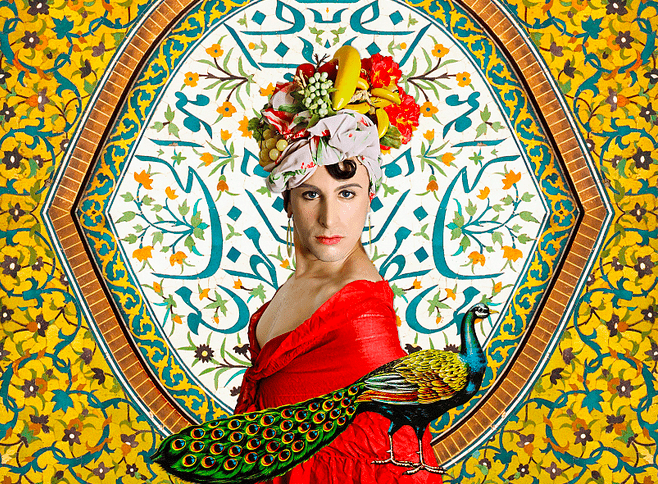Ila janeb habibi (Next to habibi), a new thematic cycle of Thursdays at the IMA, was designed by professor of Arabic literature and translator Frédéric Lagrange in response to the exhibition “Habibi, the revolutions of love”. 2nd in this cycle, the round table entitled “Transidentities in the Arab world” will bring together activist Eden Ghali, anthropologist Corinne Fortier and artist and performer Khookha McQueer.
Transidentities in the Arab world
If the pre-modern societies of the Arab-Muslim universe seem to have tolerated – at least according to the testimony of literature but also that of travelers and early anthropologists – forms of transidentity and cross-dressing, under various names (khanīth, mukhannath, khawal, etc.), do the states and societies of the contemporary Arab world leave space for individuals who do not recognize themselves in the social genders assigned to them at birth? How to be what one is in today’s Arab city?
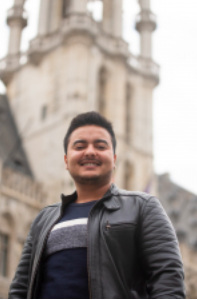
Speakers
Eden Ghali is a Belgian-Moroccan activist for the rights of transgender people. Founder of Moroccan Transmen Community (MTC), he was able to make his platform a safe space for Moroccans from the LGBTQ+ community who had just gone through a crisis caused by a public outing in full confinement. Apart from his activist work, Ghali has a degree in Psychology and is currently pursuing postgraduate training in Belgium. Through his academic and professional career, he strives to break the stereotypes that surround transgender people by trying to offer fair representation to them.
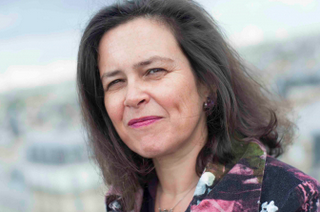
Corinne Fortier is an anthropologist. She is in charge of research at the CNRS and a member of the Laboratoire d’Anthropologie Sociale at the Collège de France. In 2005, she received the CNRS bronze medal. Her research focuses on the themes of the body, gender and filiation in Islam and in the Arab-Muslim world as well as in France, and in particular on gender relations, love, seduction, transidentity, intersex, medically assisted procreation. Among his recent publications, we can mention, in 2018, the edition of the book Reinventing Love? Gender, Intimacy and Romance in the Arab World, Bern (Peter Lang), in 2020 of the double issue (79 and 80) of the journal Law and Cultures, Repairing bodies and sexes (online), in 2021 of issue 16 (2) of the journal Anthropology of the Middle East, Poetized Love: Affects, Gender and Society, Poetized love: affects, gender and societies (online), in 2022 from the book The body of identity. Body transformations, gender, and sexual surgeries, Paris (Karthala), as well as numerous articles including in 2017, “Intersexuation, transsexuality and homosexuality in Islamic countries”, in Homosexuality and monotheistic traditions: towards the end of an antagonism? Geneva (Labor and Fides), in 2019, “Sexualities: Transsexualities: Middle East, North Africa, West Africa”, Encyclopedia of Women and Islamic Cultures (EWIC), Supplement 20 (online), in 2020 “Third gender and transsexuality in Islamic countries”, Law and cultures 80 (online), or again in 2022: “From the Turkish bath to the origin of the world. Women, bearded, beardless, effeminate and other third genders in Western art and in the Arab-Muslim world. Skinology 9 (online).
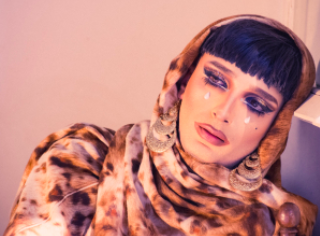
Khookha McQueer is a digital artist, performer, non-binary trans born in 1987 in Tunisia. Also a columnist and activist for LGBTQI+ rights, she is known and recognized for her queer feminist columns since 2013, notably on the Arab platform Jeem, and for her drag and queer performances since 2017. She is a key figure in the Tunisian queer scene. . In collaboration with the Damj and Avocats sans frontières associations, Khookha McQueer participates, among other things, in the implementation of the first terminology guide on gender adapted to the Tunisian context. It brings together a large number of terms related to sexual orientation, identity and behavior, in Tunisian dialect and neutral Arabic, with the different interpretations of each word in the local culture. (in videoconference)
Cycle designed by Frédéric Lagrange
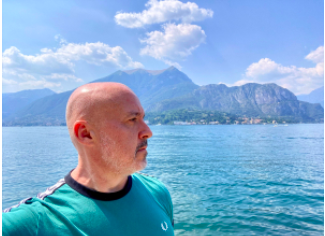
Professor of Arabic literature at Sorbonne University and translator. Her work focuses on the representations of gender in literature and other cultural productions in Arabic, medieval and modern. Latest publications: Three Seasons in Hell by Muhammad Rabie (South Acts); Pop Culture in Egypt, Between Commercial Mainstream and Protest (ed., with Richard Jacquemond).
Information
Arab World InstituteThursday, December 8, 7 p.m.
Transidentities in the Arab world, a round table this Thursday at the IMA

